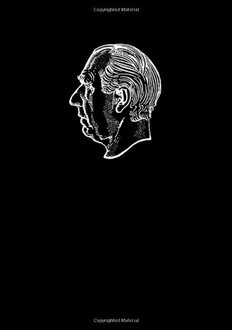
Popularization and People (1911–1962) PDF
611 Pages·2007·28.571 MB·English
Most books are stored in the elastic cloud where traffic is expensive. For this reason, we have a limit on daily download.
Preview Popularization and People (1911–1962)
Description:
The Niels Bohr Collected Works are now complete with the publication of Volume 12, Popularization and People (1911-1962). Niels Bohr is generally regarded as one of the most influential physicists of the twentieth century. The following are only some of the high points. In 1913, Bohr proposed a revolutionary model of the atom breaking with classical conceptions of physics. In 1921, he established the Institute for Theoretical Physics at the University of Copenhagen, which became the centre for the new physics visited by the younger generation of physicists from all over the world. From 1927, he oversaw the development leading to the "Copenhagen interpretation" of quantum mechanics which for Bohr formed the foundation for an epistemology valid beyond physics based on Bohr's complementarity concept. In 1939, he explained the mechanism of nuclear fission. Finally, from 1943 until the end of his life in 1962, he carried out a personal political mission to establish an open world between nations which he considered to be necessary in view of the existence of the atomic bomb. All these contributions are amply documented in the earlier volumes of the Niels Bohr Collected Works. This last volume documents Niels Bohr as a person and his efforts to explain quantum physics and its implications to physicists and non-physicists alike. While his activity over many years in the area of superconductivity illustrates his striving for synthesis in physics, his encyclopaedia articles and radio speech for Scandinavian gymnasium students document his effort to make quantum physics and its implications understandable to the general public. The bulk of the volume comprises Bohr's many published writings about his predecessors (for example Isaac Newton), teachers and colleagues (for example Ernest Rutherford and Albert Einstein), family and friends. These writings, which include several rare pieces of autobiogaphy, bring new perspectives to Bohr's life and document his substantial social network, both internationally and within his beloved Denmark. In addition to Bohr's publications reproduced in Parts I and II, the volume includes a more brief Part III with selected correspondence, as well as an inventory of relevant manuscripts. It concludes with a bibliography of Bohr's many publications, chronologically arranged with references to where they can be found in the various volumes of the Collected Works. The volume is illustrated with many new photographs. * Niels Bohr * Collected Works * Archival Documents * Original Photographs
See more
The list of books you might like
Most books are stored in the elastic cloud where traffic is expensive. For this reason, we have a limit on daily download.
